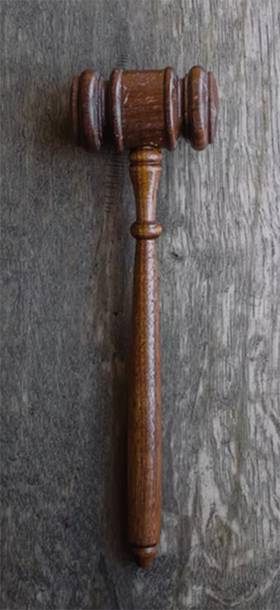LOUISIANA CHILD VICTIMS ACT
Governor John Bel Edwards of Louisiana recently signed a bill extending the period in which child sex crime victims may seek compensation for their abuse in civil court. The Louisiana Child Victims Act comes into effect on August 1st and brings a significant change for the three years it is in place. Louisiana has a history of abuse, specifically in the Catholic church. This bill is essential because it holds space for abuse that has since been unresolved, hidden, or covered up. Any legal battle can be challenging, and our experienced sex abuse lawyers want to help you. Please do not hesitate — contact us at Herman Law today so that we can provide you with the legal advice you need to seek justice.
What is child sexual abuse?
Examples of Child Sexual Abuse
The Effects of Child Sexual Abuse
Child Sex Abuse Cases in Louisiana
Louisiana’s Child Sexual Abuse Laws
What You Need To Know About Louisiana’s Child Victims Act
What is the difference between a criminal case and a civil case for sex abuse claims?
What kind of compensation can I receive if I experienced sexual abuse in Louisiana?
Recent Settlements in Louisiana
What should I do if I experienced sexual abuse in Louisiana?
How can a Louisiana child sexual abuse attorney help me?
What is child sexual abuse?
In Louisiana, child sexual abuse refers to:
The commission by anyone over the age of seventeen of any lewd or lascivious act upon the person or in the presence of any child under the age of seventeen, where there is an age difference of greater than two years between the two persons, intending to arouse or gratify the sexual desires of either person, by the use of force, violence, duress, menace, psychological intimidation, the threat of great bodily harm, or by the use of influence under a position of control or supervision over the juvenile. Lack of knowledge of the juvenile’s age shall not be a defense.
Examples of Child Sexual Abuse
Child sexual abuse includes physical and non-physical behaviors.
Physical examples of child sexual abuse include, but are not limited to:
- Forcing a child to touch someone inappropriately
- Touching a child inappropriately for sexual pleasure
- Touching a child inappropriately for an unnecessary reason
- Inserting objects or body parts into the vagina, anus, or mouth of a child for sexual pleasure
- Inserting objects or body parts into the vagina, anus, or mouth of a child for an unnecessary reason
Non-physical examples of child abuse include, but are not limited to:
- Watching a child in an intimate context without their knowledge (undress, use the bathroom, etc.)
- Indecent exposure
- Showing pornography to a child
- Pressuring a child to perform sexual acts
- Speaking about sex to startle or spark curiosity in a child
The Effects of Child Sexual Abuse
The effects of child sexual abuse reach far beyond the timeframe of the actual crimes committed. Sexual abuse victims may experience long-term and short-term effects, including physical, mental, and emotional effects.

The Short-Term Effects of Child Sexual Abuse
The short-term physical effects of child sexual abuse may include:
- Severe pain
- Sexually transmitted infections
- Pregnancy
- Unexpected bodily changes
- Nervous behaviors (bedwetting, insomnia, etc.)
The short-term mental effects of child sexual abuse may include:
- Shock
- Anxiety
- Depression
- Inability to process the abuse
- Nervousness
Finally, the short-term emotional effects of child sexual abuse may include:
- Lashing out
- Inability to express emotions properly
- Violent outbursts
The Long-Term Effects of Child Sexual Abuse
Although there are apparent short-term effects of child sexual abuse, the trauma and subsequent manifestation of that trauma may last months, years, or a lifetime. The Indiana Chapter of the National Children’s Alliance categorizes the physical, mental, and emotional long-term effects of child sexual abuse.
The long-term physical effects of child sexual abuse may include:
- Chronic pelvic pain
- Headaches
- Backaches
- Joint pain
- Fibromyalgia
- Obesity
The long-term mental effects of child sexual abuse may include:
- Inability to properly derive meaning from healthy relationships
- Depression
- Anxiety
- Low confidence
- Obsessive disorders
- Eating disorders
- Insomnia
- Sexual aversion
Finally, the long-term emotional effects of child sexual abuse may include:
- Disinterest in forming meaningful relationships
- Feelings of isolation
- Unhealthy coping mechanisms (addiction, self-abuse, suicide, etc.)
- Sexual dissatisfaction
Child Sex Abuse Cases in Louisiana
Unfortunately, there are a plethora of examples of child sex abuse cases in Louisiana. Many of these examples have connections to the Catholic church.
In 2016, David H. DeRousse, 69, was charged with seven separate counts of aggravated criminal sexual abuse. He was formerly the president of St. Frederick Catholic High School. The victims were two young girls, ages ten and 12, and the abuse occurred over two years, from August 2014 to August 2016. In a news release, New Star reported, “The Diocese of Shreveport said it learned Tuesday of the felony sexual abuse charges. Diocesan Superintendent of Schools, Sister Carol Shively, said, ‘in Mr. DeRousse’s three years of employment with St. Frederick’s, we have no record of any misconduct in this regard.’ All diocesan schools and places of worship remain committed to the guidelines of established Safe Environment policies.”
As recently as this year (2021), V.M. Wheeler—lawyer and Catholic deacon—was accused in a civil suit of not only molesting a 10-year-old boy about 22 years ago but also of attempting to silence that boy. Associates of Wheeler allegedly offered to pay him $400,000 to keep quiet. 4WWL Eyewitness News reports, “Wheeler befriended the family of the plaintiff, now 32, when the child was about ten years old, long before he became a deacon, according to the lawsuit. The lawsuit contends Wheeler groomed the boy — identified as “John Doe” — by buying him a video game console, taking him to movies, and letting him sleep over at his Metairie home when the child’s parents were going through a divorce. Ultimately, Wheeler groped the boy’s genitals, took showers with him, and — at least three times — orally raped him, the suit alleges. On a ski trip, Wheeler allegedly invited the plaintiff and the boy’s brother into bed with him.” The plaintiff, unnamed, went to the archbishop to report the abuse upon learning Wheeler was ordained. Rather than suspend him, Archbishop Gregory Aymond issued Wheeler a “warning.”
Also, this year (2021), Reverend Seby Shan of Christ the King Catholic Church in Bossier City was removed from his position after being charged with possession and distribution of child pornography and bestiality.
There have been so many accusations against the Catholic church in Louisiana that the state police asked Governor John Bel Edwards to conduct a statewide investigation. Richard Windmann, head of the Louisiana chapter of the Survivors Network of those Abused by Priests, explained, “it is a serious problem when the district attorney in Lafayette says on public TV that he doesn’t have to do an investigation because ‘the church has already done their investigation.’ It is a huge problem when our state law recognizes and bows down to canon law. The church has proven time and time again that it is not capable of policing itself […] In the event that you will entertain our request, I can refer your office and the state police to several officers of the court that can provide irrefutable documentation that the rape of our children was organized, systematic, institutionalized, intentionally covered up, and that there is a cover-up of the actual cover-up.”
Other institutions in Louisiana have also been exposed for their laundry list of sexual abuse claims—namely, the Boy Scouts. Courts required the Boy Scouts of America to release a collection of documents detailing the past 60 years of suspected child abuse within the organization. A Baton Rouge Scout recently found his former Scout Leader among the list of names. Nola reports, “He had questions for him: about the vodka parties they’d had when he was 14, about the pornography they’d watched together, about a night in the backseat of a van when he says he pretended to sleep while his Scoutmaster fondled him.”
On the list, Nola also reports, “More than 70 Louisiana cases are listed among the “perversion files” — a vast, long-secret collection of documents chronicling men cast out of the Boy Scouts of America over the past six decades because, in many cases, they were suspected of being child molesters. Nearly 20 of the cases have a connection to New Orleans — a city particularly salient in the history of the Scouts as the site of the organization’s first well-known sex abuse scandal 36 years ago.”
Systemic abuse seeps into Louisiana Schools as well. In March 2021, authorities arrested Luling gymnastics coach Jonathan West on charges of sexual battery and indecent behavior with a child. AP News reported the incident and included a telling headline: “Louisiana gymnastics coach accused again of child sex abuse.”
Louisiana's Child Sexual Abuse Laws
Previously, Louisiana child sex abuse victims suffered from a harsh deadline of 28 years of age to file civil lawsuits against their abusers. This statute of limitations applied to child molestation, child rape, and child sexual assault of any kind.
Molestation of a juvenile is defined as:
The commission by anyone over the age of seventeen of any lewd or lascivious act upon the person or in the presence of any child under the age of seventeen, where there is an age difference of greater than two years between the two persons, intending to arouse or gratify the sexual desires of either person, by the use of force, violence, duress, menace, psychological intimidation, the threat of great bodily harm, or by the use of influence under a position of control or supervision over the juvenile. Lack of knowledge of the juvenile’s age shall not be a defense.
Anyone convicted of molestation may be fined up to five thousand dollars and imprisoned for one to ten years.
Louisiana law categorizes juvenile rape into first, second, and third-degree. The first degree refers to sexual intercourse without consent on an individual over 65 or under 13; the second degree refers to anal, oral, or vaginal intercourse without consent under force or when the victim cannot resist. Third-degree rape is like the second degree, but with the added circumstances of victim intoxication, unconsciousness, belief that the abuser is a victim’s spouse, or the like.
Sexual assault, defined by the state of Louisiana, refers to:
A sexual act upon another person using any of the following: (a) Threatening or placing another person in fear. (b) Causing bodily harm to another person. (c) Making a fraudulent representation that the sexual act serves a professional purpose. (d) Inducing a belief by any artifice, pretense, or concealment that the person is another person.
A sexual act upon another person when the person knows or reasonably should know that the other person is asleep, unconscious, or otherwise unaware that the sexual act is occurring.
A sexual act upon another person when the other person is incapable of consenting to the sexual act because of any of the following: (a) Impairment by any drug, intoxicant, or other similar substance, and that condition is known or reasonably should be known by the person. (b) A mental disease or defect or physical disability, and that condition is known or reasonably should be known by the person.

Why were Louisiana's old child sex abuse laws ineffective?
What You Need To Know About Louisiana's Child Victims Act
The most important things you need to know about the Louisiana Child Victims Act legislation include the duration of the look-back window, the deadline, and the new statute of limitations on child sexual abuse claims. Louisiana Gov. John Bel Edwards signed the House Bill into law on Monday, June 14th, 2021. It formally goes into effect on August 1st, 2021.
This date begins the three-year period in which previously expired child sex abuse claims may be reintroduced in civil court. The new bill also eliminates all statutes of limitation on civil child sex abuse claims. Previously, the statute of limitations expired at 28 years of age.
The three-year window means that children of Louisiana that are child sex abuse victims may file civil claims against their abusers even if the claims have expired. For the three years after August 1st, 2021, anyone may come forward with their sexual trauma and file a lawsuit in civil court. They may also file civil claims against those that allowed abuse to occur, such as institutions or other individuals.
The Louisiana Child Victims Act goes into place on August 1st, 2021. New Orleans Representative Jason Hughes of District 100 initially supported the bill.
Rep. Hughes was elected in 2019 and serves on the following committees, caucuses, and delegations:
- Appropriations
- Health and Welfare
- Judiciary
- Ways and Means
- Joint Legislative Committee on Capital Outlay
- Joint Legislative Committee on the Budget
- House Select Committee on Homeland Security
- Democratic Caucus
- Louisiana Legislative Black Caucus
- Orleans Delegation
You can contact Rep. Hughes at P. O. Box 872461, New Orleans, LA 70187, or by phone at (504) 246-9707.
The Child Victims Act helps sex abuse victims in New Orleans by allowing them to seek justice for their abuse, even if it happened years ago. So many children experience sexual abuse at a young age, at the hands of trusted adults or institutions. These experiences may incite feelings of fear and shame, prompting them to keep quiet about their abuse rather than speak out. The Child Victims Act allows these victims to come forward in a time in their life where they may be more mature, well-rounded, and capable of speaking up about their abuse.
What is the difference between a criminal case and a civil case for sex abuse claims?
The difference between a criminal and civil case for sex abuse claims lies in the claim’s focus. Criminal cases focus on the abuser. Their goal is to punish the abuser for crimes committed. Civil cases focus on the abused. Their goal is to compensate the harmed for the trauma they endured at the hands of their abuser and the institution that allowed abuse to occur.
What is the burden of proof for a civil claim?
The burden of proof refers to the responsibility of a party to produce evidence to prove that the assumed innocence of the other party is incorrect. If you brought the claim to court, the burden of proof lies on you. This is because common law in the United States falls on a Latin maxim that translates to: “the necessity of proof always lies with the person who lays charges” (semper necessitas probandi incumbit ei qui agit). Although the burden of proof is still on the person who filed the claim (in this case, the sexual abuse victim), the burden of proof in a civil suit is significantly lower than the burden of proof in a criminal trial.
Criminal cases must be proven “beyond a reasonable doubt,” while a “preponderance of the evidence” must establish civil cases. These phrases may sound similar but legally mean completely different things. The former is straightforward—but a high standard. The latter means that the evidence submitted must be significant but does not need to be perfectly sound for a jury to award damages to the victim.
What evidence do I need to prove my child's sexual abuse claim?
In Louisiana, sexual abuse includes the following physical and non-physical acts:
- Forcing a child to touch someone inappropriately
- Touching a child inappropriately for sexual pleasure
- Touching a child inappropriately for an unnecessary reason
- Inserting objects or body parts into the vagina, anus, or mouth of a child for sexual pleasure
- Inserting objects or body parts into the vagina, anus, or mouth of a child for an unnecessary reason
- Watching a child in an intimate context without their knowledge (undress, use the bathroom, etc.)
- Indecent exposure
- Showing pornography to a child
- Pressuring a child to perform sexual acts
- Speaking about sex to startle or spark curiosity in a child
Because there is often little physical evidence to provide after a child sex abuse claim has gone unreported for a long time, cases often rely on “the quality of the verbal evidence and the effectiveness of the child victim’s testimony,” according to the National Institute of Health.
Other specific evidence, however, must be gathered to support a claim. Herman Law has years of experience handling child sex abuse cases and knows exactly how and where to get the information needed to prove your claim. We have an internal investigative team with over 125 years of experience in law enforcement. The group includes former sex crimes detectives and special agents from the Department of Justice whose sole job is investigating and uncovering evidence for clients of Herman Law. Because this process is complex and often daunting, it is crucial to contact an experienced sex abuse lawyer to ensure you have everything you need to file your claim.
Whom can I hold responsible for sexually abusing me?
The parties who may be held responsible for a sexual abuse claim include the perpetrator, the institution or organization that allowed the abuse to occur, and any other individuals who failed in their responsibility to protect a child from abuse.
What kind of compensation can I receive if I experienced sexual abuse in Louisiana?
Additional compensation may include what experts call “punitive damages.”
Punitive damages are monetary amounts awarded in excess of other economic and non-economic damages and are considered a form of punishment on the defendant’s part.
A court awards punitive damages at their discretion under extreme circumstances (i.e., when the court considers a defendant’s actions particularly heinous).
Recent Settlements in Louisiana
In Louisiana, many settlements have come from the Catholic church. A recent flood of activists opposing non-disclosure agreements has exposed several child sexual abuse incidents in the church. Christianity Today reports:
The first public information about a Christian organization using an NDA is in a settlement of sexual abuse allegations.
A Catholic family whose three sons had been abused by a priest in Louisiana accepted a settlement of several hundred thousand dollars and signed an agreement that included a confidentiality clause. Later, they regretted that when they met other children victimized by the priest and learned their bishop had reassigned the serial predator to another congregation. The bishop “used the excuse that he made a vow to protect the church,” the family’s father later told journalists. “He made it very plain that the church came first.”
In 2018, the Louisiana archdiocese made yet another settlement with a victim of child sex abuse. 4WWL Eyewitness News reported:
Authorities arrested Brignac three times in the 1970s and 80s on molestation charges before the archdiocese permanently suspended him from his duties as a deacon. But despite his extensive rap sheet and his removal from the clergy, Brignac had gone on to spend another 20 years volunteering with a Catholic community service organization. Even more disturbing, with the blessing of two different pastors, he had been reading at Masses at St. Mary Magdalen in Metairie. Both roles brought the former Catholic school teacher into proximity with children.
The roles gave him an imprimatur of trust, despite his own written admission that those in charge should not allow him to work around minors. That arrangement had largely escaped public notice until the summer of 2018. That’s when a local man announced in a newspaper story that he had received $550,000 from the archdiocese after he explained that Brignac had raped him as a child decades earlier.
This news brought a flurry of new claims against the church, including a specific email written by a 1978 victim who was groomed and molested for two years.
In May 2020, the Louisiana archdiocese filed for bankruptcy after crumbling under the weight of hundreds of sexual abuse lawsuits.
What should I do if I experienced sexual abuse in Louisiana?
No matter how long ago the abuse occurred, if you experienced sexual abuse in Louisiana, you should pursue compensation via a civil claim. The first step is to contact a sex abuse attorney. From there, our attorneys will walk you through the evidence we will need to gather and the steps we will take to file a claim during the revival period that begins August 1st, 2021. If you or a family member are the victims of sexual offenses or survivors of child sex abuse, you have the legal right to seek justice. We have helped in the process of healing survivors of abuse for decades.
How can a Louisiana child sexual abuse attorney help me?
A Louisiana child sexual abuse attorney can help you through the complicated process of filing a civil claim against your abuser(s) and, if applicable, the institution which allowed them to abuse you. We have an internal investigative team with over 125 years of experience in law enforcement. The group includes former sex crimes detectives and special agents from the Department of Justice whose sole job is investigating and uncovering evidence for clients of Herman Law. Because this process is complex and often daunting, it is crucial to contact an experienced sex abuse lawyer to ensure you have everything you need to file your claim.

We will compile the necessary evidence to bring your claim to life and get the compensation you deserve for the trauma you endured. Our attorneys and investigators have helped many survivors begin their healing process and find some semblance of closure. We will treat you with the respect and integrity that you have the right to from start to finish. Please do not hesitate. At Herman Law, we know that the first step of reaching out can be the hardest. However, we want to help you in any and every way that we can. If someone sexually abused you as a child, please get in touch with us here for a free case evaluation—we look forward to speaking with you!

